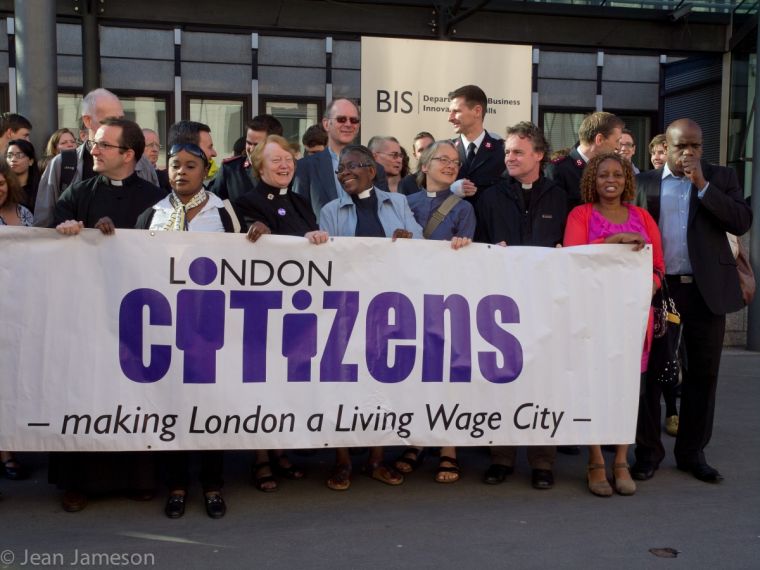Church leaders back 'real' Living Wage
Sixty-five religious leaders including senior figures from the Anglican, Catholic and Methodist Churches, Masorti, Reform and Liberal Jewish movements and the Muslim Council of Britain published a letter in the Sunday Times yesterday backing the real Living Wage and citing concern at low pay and in-work poverty 'which is damaging family life, and robbing future generations of a secure and stable home'.

Signatories of the letter organised by charity Citizens UK, the founders of the Living Wage campaign, include 20 Catholic and Anglican bishops including the Roman Catholic Archbishop of Birmingham, 30 rabbis from Liberal, Reform and Masorti Jewish movements, the president and vice president of the Methodist Church and the secretary general of the Muslim Council of Britain Harun Khan.
The letter comes as celebrations are planned with 4700 employers who are accredited by the Living Wage Foundation, which oversees the real Living Wage rate (currently £8.75) and the London Living Wage (currently £10.20) which are set to rise today in line with the real cost of Living.
Research released by accountancy firm and Living Wage employer KPMG found that one in five workers is paid under a real Living Wage, meaning millions of workers are struggling to stay afloat financially as their wages don't meet the real cost of living.
Unlike the government minimum wage rates, the real Living Wage is independently calculated by economic experts to meet the real cost of living, taking into account multiple factors like transport and housing costs and geographic differences between London and the rest of the UK. Employers who accredit with the Living Wage foundation pay at least the real Living Wage to all workers over 18, including third party contractors.
Roger Morris, the Bishop of Colchester, a letter signatory said: 'A real Living Wage is put simply, the best route of poverty for working families and all employers should look at paying it if they can. Our churches and community organisations can provide relief to those who reach crisis point, but a far better solution would be for everyone to join in the effort to end poverty and catch people before they fall in the river rather than waiting until they are in real financial trouble to help them out.'











